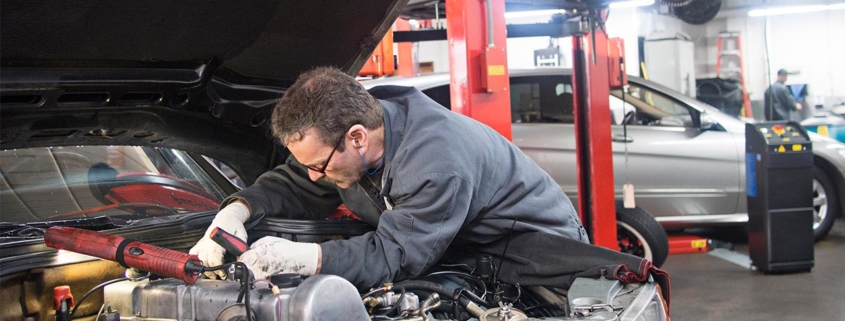Can Auto Repair Shops Be Liable for a Car Accident?
The belief that a car mechanic knows the craft and would repair our vehicle properly is an underlying premise when we take our car to a garage for a tune-up or to fix minor problems. It can sometimes be tricky to determine which mechanic to trust unless a family member or friend recommended them.
Even with a recommendation, there is a possibility that the mechanic could do a sub-standard job that might result in a vehicle crash. In case an accident occurs under such conditions, you can hold the mechanic responsible for damages with the assistance of a car accident lawyer. But before bringing a claim against a garage or mechanic, it is vital to understand what comprises negligence on the part of the repair shop or mechanic.
What Comprises Negligence?
In most personal injury cases, negligence forms the foundation of the lawsuit. There must exist a duty of care and a breach of trust before you can file a personal injury case. To prove that a garage or car mechanic acted in a negligent manner, you will have to establish that they contributed to one of the vehicle accident causes, even if it wasn’t the primary or sole contributory factor.
In general, the individual who asserts negligence must provide concrete evidence to show that:
- The defendant had a duty of care towards them and was supposed to undertake reasonable measures in preventing the injury sustained
- The defendant violated the duty of care by failing to act or acting recklessly
- The breach has a causal relation to the injury sustained by the victim
- The harm endured resulted in damages
A Mechanic’s Duty of Care
To establish that a repair shop or mechanic behaved in a negligent manner, you must first prove that the defendant owed you a duty of care. An underlying belief is that the individual running a repair shop has the requisite skills and necessary licenses.
It implies that anyone who brings a vehicle to the shop expects to receive services that would address the issue they came with or advice on what to do. Therefore, the mechanic has to inform car owners when their vehicle is safe to operate or not.
Further, the mechanic has to inform the vehicle owner whether they can fix the car’s issues or not. The inability to undertake the above would amount to a breach of the duty of care on the mechanic’s or repair shop’s part.
Other examples of breach of duty of care include the following:
- Undertaking wrongful repair
- Leaving behind foreign objects detrimental to the car during the repair
- Replacing old parts with substandard ones
- Changing vehicle parts in such a manner that the automobile is rendered unlawful to drive
Notably, after addressing the issue that took you to the repair shop, if a mechanic warns you of another problem, but you do not fix it, they will not be held responsible for any collision or injury. The same is applicable if you operate your vehicle after the mechanic warns you of certain problems that might make it inoperable under specific conditions.
For instance, if the mechanic reports that your tire treads are weak and will not gain traction in inclement weather conditions, they have fulfilled their duty of care. The auto repairer cannot be held liable for any non-corrective decision you take outside that recommendation.
Can you File a Case against a Mechanic for Misdiagnosis?
A mechanic misdiagnosis, also referred to as a “faulty diagnosis” or a “mistaken repair,” occurs when an auto repairer does not detect the real problem. For example, if a car is making strange noises that the mechanic determines to be a part of the steering system when it is actually coming from the brakes, then it will be seen as an instance of misdiagnosis.
In a case of misdiagnosis negligence, the car owner will need to show that the mechanic did not exercise the same degree of care that any other vehicle mechanic would have exercised in the same or similar situation. In addition, the car owner will have to show that the misdiagnosis was foreseeable, the mechanic’s negligence caused the damage, and the damages sustained are measurable.
How to Link a Breach of Duty to Your Damages
In civil actions, establishing recklessness or a breach of duty is difficult to achieve and warrants the expertise of an experienced car accident lawyer. To be able to link a breach of duty to your injuries, you have to maintain accurate documentation of the repair work performed on your automobile.
The garage that handles the post-accidental repair work must determine any post-accident vehicular problem and how it contributed to the crash. Ask your lawyer or insurance provider to undertake a thorough investigation of possible mechanical faults.
As he who asserts must prove, it is incumbent upon you to establish a direct causation link to the mechanic. Also, the link determines the amount of compensatory damages you will likely receive for the breach of duty or whether you get any compensation at all.
Contact Burge & Burge if Your Auto Mechanic Behaved Recklessly
If you believe that your vehicle crash occurred due to the careless behavior of your mechanic or repair shop, you need strong representation from a leading vehicle accident attorney at Burge & Burge. Our highly skilled legal team has many years of experience handling auto accident cases ranging from minor to serious car accident injuries. Call us today at 205-251-9000 for a free no-obligation case review.




Leave a Reply
Want to join the discussion?Feel free to contribute!